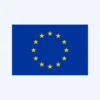overview of the EDPB guidelines on article 48
The European Data Protection Board (EDPB) has recently issued draft guidelines to clarify the application of Article 48 of the General Data Protection Regulation (GDPR). This provision plays a critical role in regulating how EU-based private entities handle personal data requests from authorities in countries outside the EU. The guidelines are aimed at ensuring that personal data leaving the EU maintains strict protection in accordance with GDPR principles. They are currently open for public consultation until January 27, 2025, after which they will be finalized.
No affiliates available for this country.
These guidelines emphasize that third-country legal or administrative decisions—such as court judgments or regulatory orders—cannot override EU data protection rules. Specifically, these foreign requests must align with international agreements or treaties that include robust safeguards. Even where a legal obligation exists in the third country, EU principles take precedence. This guidance marks a significant move to bolster the protection of data subjects’ rights in cross-border situations.
The EDPB also highlights the responsibility of private entities to scrutinize the legitimacy and adequacy of such data transfer requests. From clarifying key compliance criteria to underscoring the legal groundwork for data protection, the guidelines set a structured framework, minimizing ambiguity for companies navigating complex international data transfer requests. For more details, refer to the EDPB’s official website.
interpretation of article 48 provisions
Article 48 of the GDPR is a cornerstone in the EU’s data protection framework, ensuring that personal data remains protected, even when faced with requests from third-country authorities. According to the EDPB’s interpretation, Article 48 does not act as an independent ground for data transfers but serves as a limitation. This means that disclosures of personal data to non-EU entities cannot bypass GDPR safeguards without relying on an international agreement or applicable legal grounds for the transfer. Essentially, Article 48 establishes a protective barrier to prevent external requests from undermining EU data protection standards.
The EDPB emphasizes that data requests from third-country authorities, including judicial or administrative orders, must not be executed unless backed by an international agreement containing robust safeguards. These agreements, like mutual legal assistance treaties (MLATs), ensure compliance with GDPR principles. By framing Article 48 as a safeguard rather than a loophole, the guidelines prioritize the rights of EU citizens while promoting a structured and lawful approach to cross-border data transfers. For further reading, see GDPR Info.
analysis of the two-part test for data transfers
The two-part test outlined by the EDPB provides a structured approach to analyzing third-country data transfer requests, ensuring compliance with GDPR. Firstly, transferring personal data in response to requests from non-EU authorities requires a legal basis under Article 6 of the GDPR. This legal basis determines whether the initial processing of the data complies with EU laws, serving as the foundational requirement before any data leaves EU jurisdictions.
The second step evaluates whether the requirements of Chapter V of the GDPR are met. This chapter governs cross-border transfers and necessitates specific safeguards, such as binding corporate rules, adequacy decisions, or international agreements. The EDPB stresses that these safeguards must ensure the data enjoys “essentially equivalent” protection in the third country. Importantly, the presence of an international agreement doesn’t automatically satisfy this. Companies must examine if the agreement includes protective measures such as enforceable rights for individuals or mechanisms for independent oversight.
This rigorous framework ensures private entities assess and justify their decisions, preventing misuse of personal data in cross-border operations.
entity responsibility and complexities in compliance
Private entities face significant challenges in navigating the responsibilities outlined in the EDPB guidelines, particularly when responding to third-country requests for personal data. The EDPB places considerable weight on their ability to act as gatekeepers of EU citizens’ data, requiring meticulous assessments to ensure compliance with GDPR. One of the most complex aspects is the necessity for entities to individually evaluate whether international agreements provide adequate safeguards. This demands not only legal expertise but also a thorough understanding of data protection principles and international agreements, which many entities may lack.
Moreover, the guidelines underscore that entities must apply this scrutiny on a case-by-case basis. They cannot rely on blanket assumptions about the validity of a third-country’s request, even if an agreement exists. This adds operational burdens, especially for multinational companies regularly dealing with data transfers. The need to balance GDPR compliance while avoiding potential legal conflicts with foreign authorities further complicates matters, illustrating the intricate intersection of data protection and international law.
implications of the guidelines on international agreements
The EDPB guidelines carry significant implications for international agreements, adding new dimensions to how these agreements are interpreted and implemented in the context of GDPR compliance. Under the EDPB’s approach, international agreements are a preferred legal basis for cross-border data transfers but only if they provide “appropriate safeguards.” These safeguards must ensure a level of data protection comparable to that within the EU, an expectation that raises the bar for the content and enforceability of future agreements.
For instance, agreements such as Mutual Legal Assistance Treaties (MLATs) must include enforceable rights for individuals, clear limitations on data use, and transparency mechanisms. What’s particularly notable is the responsibility placed on private entities to judge whether these agreements meet GDPR standards, a task traditionally within the purview of EU or national authorities.
This shift could lead to renegotiations of existing agreements or even influence the framework of future international treaties. EU Member States may need to align their diplomatic efforts to ensure compliance while maintaining cooperative relationships with third countries. The guidelines thus set a precedent for recalibrating the role of international cooperation in safeguarding personal data in a globally connected world.




